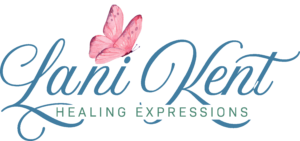For many survivors of childhood trauma, personal agency, healthy boundaries and the freedom of choice did not feel like options that were available. In dysfunctional systems, many were in survival mode and developed a high tolerance for people pleasing, co-dependency and having their needs lost in unhealthy relational dynamics. What was life-giving to one’s soul was often sacrificed in order to keep safe, “not rock the boat”, “keep the peace” or simply to assuage the one who exerted more power or control in the relationship. In my own recovery journey and in the work I do helping others understand their stories, an important part of the journey is strengthening those underdeveloped areas where agency and choice reside. It takes hard work, and time, to compassionately understand who, what and why we may have abdicated our voice and personal power.
As we look deeper into our own stories, we can begin to explore systems and relationships where loyalty was previously unquestioned. Demands for unchallenged loyalty can be a fertile ground for abuse, manipulation and gaslighting to thrive. One of the greatest causalities can be the loss of trusting what one is seeing right in front of their eyes and experiencing in their heart. In my own journey, the loss of self trust was a deep wound that needed tender care. Having a personal reality or experience reframed to serve another’s agenda or unhealed story often leaves survivors feeling powerless, trapped, unseen, unheard and angry. These forms of emotional abuse may be subtle but their impact is profound. This is true in intimate partner and family relationships, friendships, spiritual and workplace communities. Through the recovery process, examining our stories is an opportunity to understand these dynamics and heal their resulting wounds. The journey opens the door to making new choices that are more in alignment with who we are becoming and how we want to live.
Heart healing work helps us see how our experiences have informed why sometimes we stay in places that are not good for us. What is it that is wounded in us that attaches or draws us to what is wounded in others? It can be unsettling to reexamine relationships we may have been in for years and look behind the veil to see the vulnerable truth of the experience. The issue can become further complicated for those that feel indebted to another for one reason or the other, are enmeshed in the roles they have played or who come from spiritual traditions that use love, reconciliation and forgiveness in manipulative and unhealthy ways. Understanding that we do have a choice can sometimes take years of personal work and practice.

Relational patterns and systems keep in place until they no longer work for one party and are questioned. When challenged, upsetting the system often exposes if repairs, reconciliations or amicable endings are even possible….or if the courage to go in a new direction is what’s needed. That choice may come naturally if it becomes apparent that the others narrative is fixed and change unlikely. I believe strongly in everyone’s innate capacity to change. I wouldn’t do the work I do with Healing Expressions if I didn’t…but we do not need to stay in places where we are being manipulated, used, hurt and devalued. We are all deserving of emotional and physical safety. Extracting oneself from these scenarios can be painful, gut-wrenching and confusing but also clarifying, healing and life-giving. These difficult yet courageous choices often usher in much needed internal space for perspective shifts, growth and healing.
One of the accompanying challenges for those early in developing boundary and choice muscles is the tendency towards black and white thinking. Relationships are complicated and there is seldom only one side to any situation. Rarely are folks all bad or all good. All wrong or all right. There are forms of abuse that are the exceptions of course. For the average human, however, we are all a mysterious kaleidoscope of imperfections and experiences that inform our interactions. While deciphering where one ends and another begins, learning to exercise new relational boundaries does not mean someone has to be placed “in the bad box” in order to justify making hard choices. You are allowed to change, take in new insight and adjust your path accordingly. You have a right to your “this is no longer ok”. As healing inspires growth, change and clarity, these shifts offer fresh awareness of what is best for our own hearts. Endings, distancing and a buffer of space may be necessary. Blaming, defending, justifying, making another all right or all wrong rarely serves our souls health in the end. There are times when our shape has expanded and we no longer fit back into, or can move around in, the spaces we were once allotted.

We can hold grace and mercy in our hearts for others while simultaneously walking on a new path that may not include their presence. There may be attempts at protest as the discomfort of our choices are felt by another. In my work with Story Informed Trauma Therapy, I have heard many forms that this reaction to boundary setting may take. Clients describe accusations from others of being unduly influenced or misguided, that something was wrong with them, they were being selfish, unfaithful, they were disloyal to the system, or that their intuition or gut was faulty. The phrase “You have changed”, may actually mean, “You are not being who I need you to be anymore” or “You are changing the rules of our engagement and I am not happy with that”. Folks may gather others to affirm their perspective in an attempt to minimize their own internal conflict in dealing with their part of the relational breakdown. One must be able to tolerate disappointing others and being misunderstood or misrepresented as we begin to individuate and assert independence. In the past, my own heart stayed longer is some situations than was healthy out of a deep fear of hurting another. Some boundaries and decisions will not make everyone happy and may bruise a heart. That does not mean they are not supportive, loving, helpful and necessary for our own well-being and mental health. Growth and loss are often two sides of the same coin. Releasing the need for approval from others is key to freely exploring your own choices, needs and desires.
Childhood trauma survivors are often most vulnerable to abandoning themselves and their attempts to individuate at this juncture. The pressure to conform (from self or others) and avoid the pain of change, may feel at its height. Relational shifts can be profoundly disorienting and uncomfortable. Sometimes the revelation emerges when we are years into and far down a relational road. Length of time does not diminish the right to make changes. The internal disruption does not mean the choice is not right for you. Change brings with it grief and loss. It can feel like a death of sorts as we reconcile and grieve what was both broken and even beautiful. There may be challenging consequences to sort through. Letting go of or redefining a relationship, system or community….one that may have been even good for a season can be painful. Releasing what we hoped for, what we thought it was and accepting what it really is requires patience, grace and strength. Considering that we may have unintentionally hurt someone…in the process of redefining what we are no longer willing to tolerate…is difficult. Owning any part we may have contributed is also hard but necessary work. Processing these tender aspects of the journey and decision may be best done in the therapy space and in the hands of safe and supportive others. Just because another wants to “say their peace with you” does not mean it is owed to them in their timeframe or on their terms.
Determining if repair or reconciliation is possible is a very personal choice involving a myriad of individual factors. For many, there have been previous unsuccessful attempts. Determining who speaks into our lives and has entrance into our hearts….is a birthright. When and if it is desired or possible, living in life-giving and healthy harmony with others is a natural, hoped-for outcome. There are seasons and situations, however, for which that may be best experienced from a distance. Reserving a place in our hearts for the possibility of reconciliation is again a very personal decision.

There is hope and freedom to be found amidst these challenges. Endings may open this bittersweet space, but gift us…in one way or another…with room to breathe into healthier beginnings. It serves to guide us towards those individuals and communities who authentically and graciously receive us without the agendas and restraints we may have been accustomed to in the past. Understanding the impact of trauma on our relational choices and experiences allows the healing process to move through all the emotionally charged layers…to a place of deeper understanding…where we freely “get to choose” what is good for us.
Dear One…You are not alone in this human struggle and journey towards healing. May your heart know the freedom and spaciousness of your own agency and choices. Take Good Care!





Leave A Comment